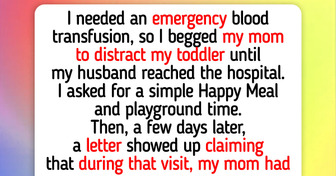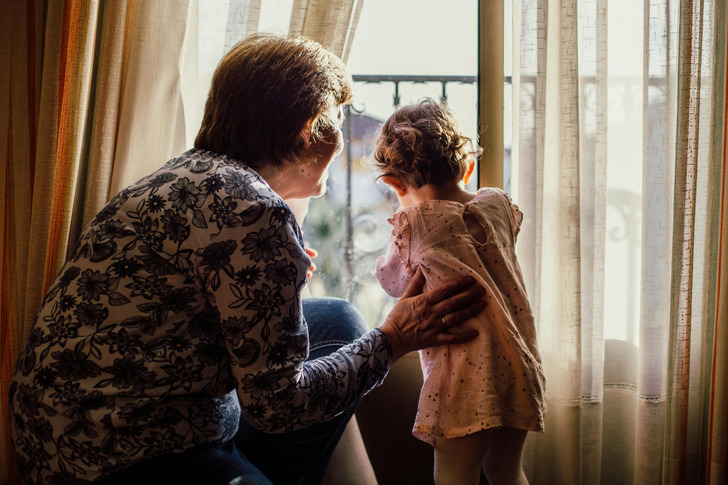Funny how the takers ,take and take. And get upset if you ask for a small favor. And ghost you because you are a selfish pos. I know..
I Refuse to Pay for My Grandchild’s Medical Bills—I Choose Boundaries Over Guilt
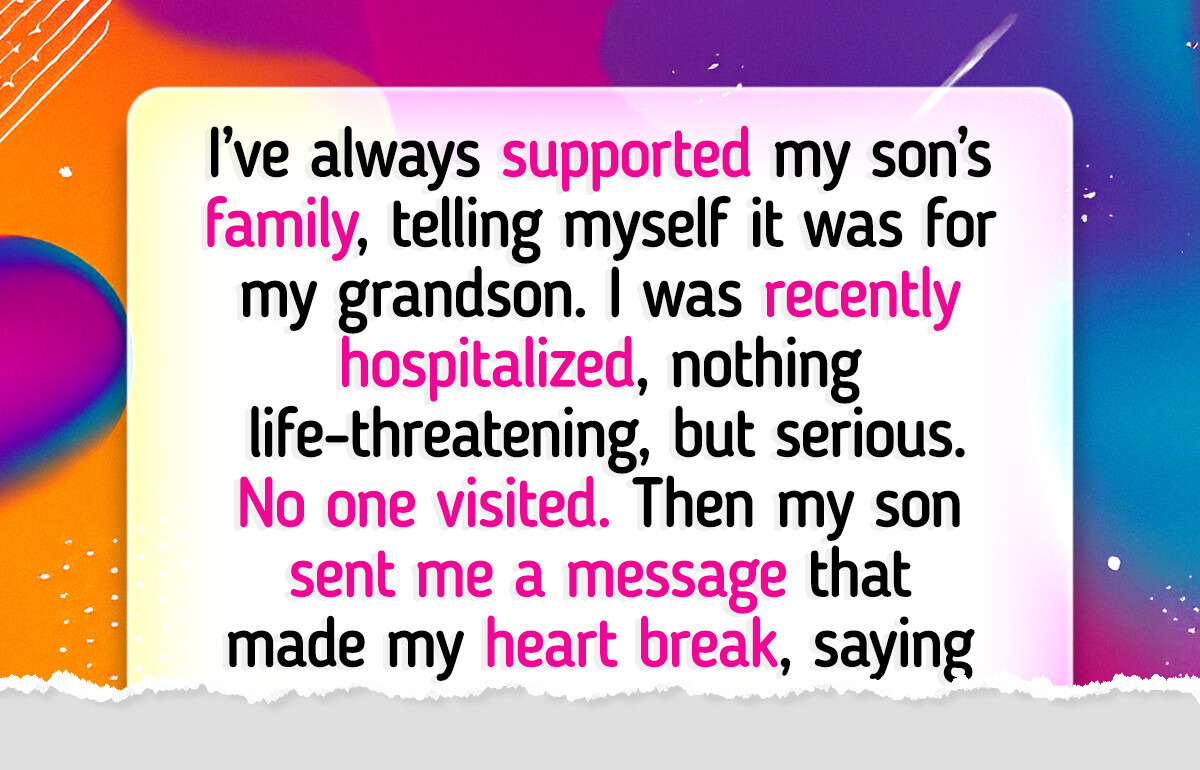
Family is meant to be a place of love, support, and connection—but sometimes, those lines get blurred when money enters the picture. When generosity is taken for granted and affection feels conditional, it raises painful questions about loyalty, love, and the true meaning of family. In moments like these, we’re forced to ask: are we valued for who we are, or only for what we give?
Unseen and unheard.
I’ve always helped my son’s family, telling myself it was for my grandson. Recently, I was hospitalized for a few days — nothing life-threatening, but serious enough that I hoped they’d visit.
No one came. I kept glancing at the door, hoping it would open, hoping I’d see a familiar face—but it never did. The silence hurt more than the illness.
Love without return.
Then my son sent me a message that made my heart break, saying, “You’re getting out soon, right? We need money for my son and were going to stop by.” That’s when it hit me — I wasn’t family to them, just a wallet.
I hung up and stared at the ceiling, wondering how love could feel so one-sided. It’s a quiet kind of heartbreak, realizing the people you’d do anything for wouldn’t even show up when all you needed was a little care.
When silence echoes.

Help those who help themselves.
Unfortunately, this is the way for way too many people. When I had a major life threatening automobile accident, almost everyone I knew ghosted me. A few stuck around for about a week saying sorry it happened. But within a month all but a couple people had moved on and forgotten about me. I didn't forget and didn't let them in my life after I recovered as much as I could.
A week later, he called again, asking for help with a medical bill for their son. This time, I said no. Now I’m the bad guy. The one who’s changed. The one who’s “turned cold.”
But honestly? Where were they when I needed someone? I replay that lonely hospital stay in my mind, and it’s not anger I feel — it’s sadness.
Thank you for sharing your heartbreaking story! Here are some helpful pieces of advice for navigating this painful situation while protecting your heart and dignity.
1. Try to communicate honestly but calmly.

When someone shows you who they are believe them!
In our increasingly busy world, nurturing healthy communication within the family has become increasingly challenging, yet it remains profoundly important. If you feel up to it, tell your son how his actions made you feel—not to blame, but to be heard. Use “I” statements to keep the conversation from becoming confrontational.
2. Consider setting clear emotional boundaries.

I am sick of these articles where they say use I statements, be non aggressive, be kind blah blah blah. Why shouldn't the grandma say " I do everything for you and you were too cold and selfish to even come see me in the hospital and now you want more, sorry sonny boy, figure it out". Maybe being truthful will snap him out of his lack of caring. Grandma does not deserve to be a door mat
Saying “no” can be difficult for many of us. Why difficult? Because it is often associated with being selfish or rude.
To the contrary, saying “no” actually means you know your value and respect yourself enough to stand up for your beliefs. It’s okay to say no when giving becomes draining or one-sided. Boundaries aren’t cruel—they’re necessary for your well-being.
3. Try to reconnect with others who value you.
You may not have received the care you hoped for, but you’ve gained clarity about what you truly deserve. Sometimes, protecting your heart is the first step toward healing. Have you ever mistaken being needed for being loved?
Comments
The more l read ,the comments, the more l see greed and ,the more l see grand parents used as ,a free bank , you willing support them ,but no thanks just a well you have money we need it how has the world become so entitled and mean , time for a trueful discussion and , lines drawn blessings l send on your recovery
Don't be an ATM for your son. If it is really an emergency for your grandson, you can help, but it doesn't sound like this is the case. I have seen my own siblings act this way towards my own father and he continues to enable them. I hope you stay strong.
Save your money for when you aren't able to care for yourself in your older years because they have made it clear they wont be there to help you. They have shown they will show up to drain your accounts and leave you rotting somewhere with no remorse. Plan for your future so you can live comfortably.
I am the youngest of five. I watched my siblings use my parents as their personal bank. I tried not to go to them for any help, the one time I did it almost broke me emotionally. When I stood up to my mom about some abuse, she went off about money and when they want something and on and on. I looked at her and said did I ever.
Put your will together, put your house in a trust. Talk to your lawyer to make sure their grubby paws get as little as possible (some places require just one dollar to each so it doesn't go to probate) give it to charity, many need it now. Better even, sell your place move far from them.
I could have written this letter. I am in tears because I feel her pain.
Related Reads
12 People Who Were Masters at Hiding Their True Intentions
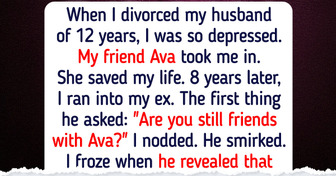
12 People Whose Brave Actions Deserve a Movie
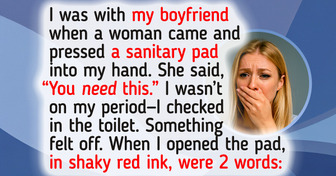
My Mom Is Dying and My Pregnant Wife Posed Me a Very Hard Question
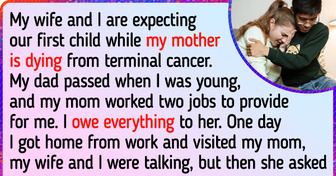
12 Good Deeds With Endings So Unexpected, They Sound Made Up
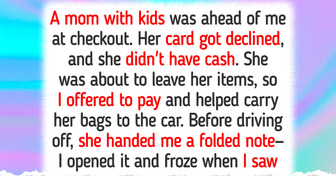
15+ Stories That Might Inspire You on Your Parenting Journey
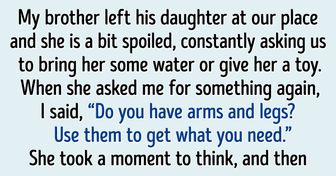
My Husband Ignored My Birthday in Favor of His “Work Wife’s” Party, I Taught Him a Lesson of Respect
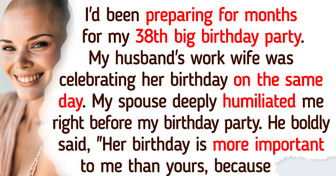
20+ People Whose Good Deeds Prove That Evil Doesn’t Stand a Chance in Our World

I Expected Something Special for My 50th Birthday — His Gift Left Me Humiliated

15 Parents That Deserve an Award for Their Great Sense of Humor
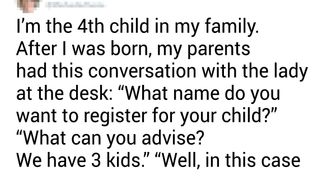
I Refused to Quit My Career After They Hired a Gen Z to Replace Me
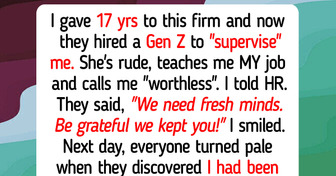
12 Strangers Who Restored Our Faith in Humanity in Under a Minute
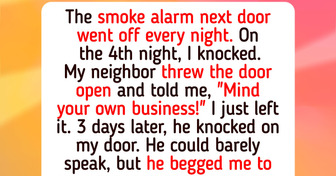
11 People Who Chose Humanity Over Hatred in the Darkest Moments
